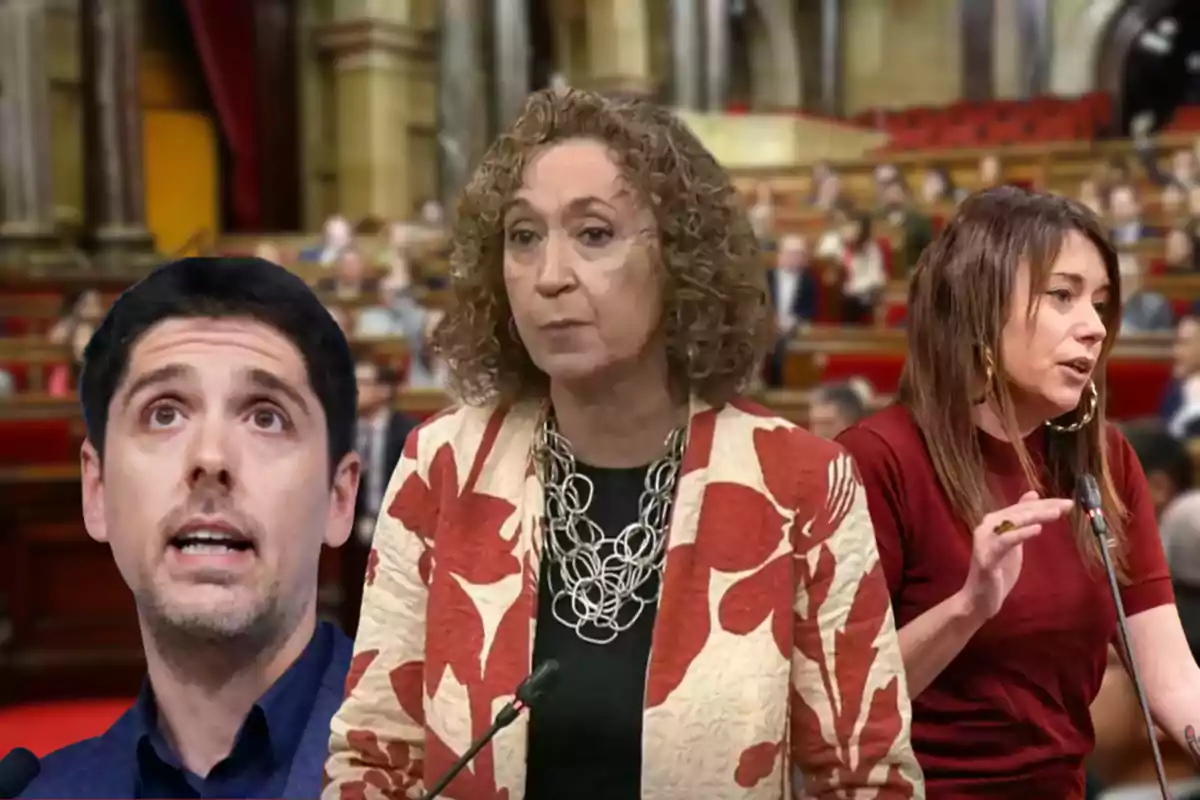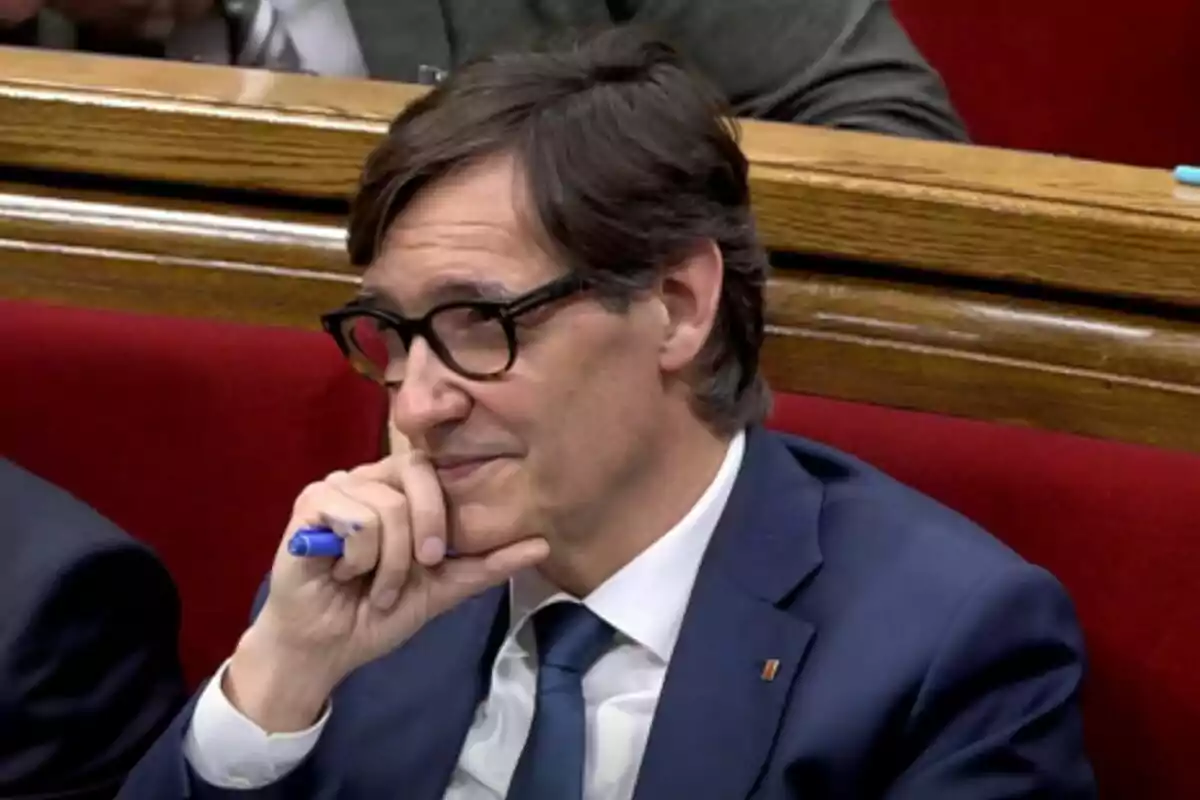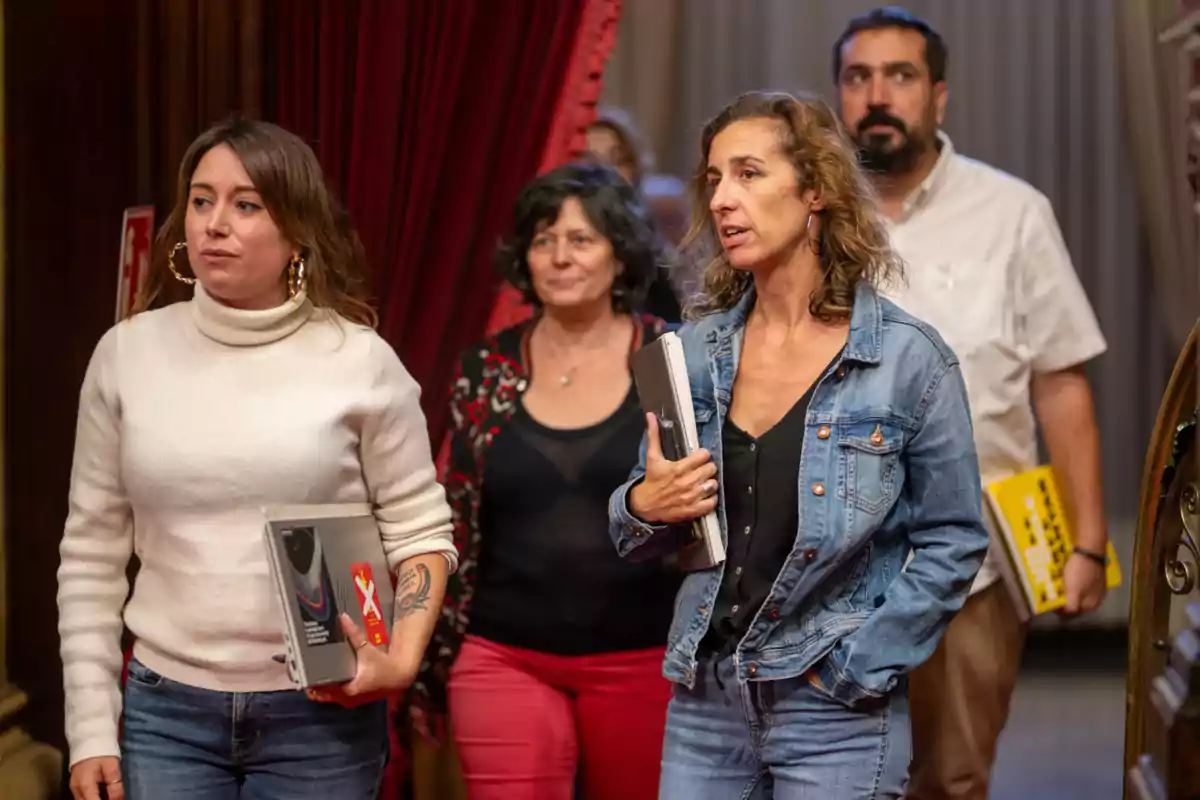
ERC, Comuns and CUP: three crutches that don't want to look like it
With the collapse of the pro-separatism movement, the space for the 'woke' left is no longer enough to keep so many parties
While Salvador Illa is a creation of President Pedro Sánchez (from minister to candidate), it makes sense for Illa to replicate Sánchez-like dynamics. One of the clearest is having a minority government with several partners, yet surprisingly stable. The case of Sánchez is striking. For at least seven years, people have said he's a "hostage" of one party or another, but he remains in Moncloa and has seen many political corpses pass by.
In Catalonia, something similar is happening, with the difference that Illa has been around for much less time than Sánchez. People say—especially the opposition—that PSC is a hostage of its partners. But the truth is that PSC has more power than almost ever, starting with the Generalitat and ending with Barcelona.
In this sense, there's a curious convergence between the opposition to Illa and Illa's partners. Illa's partners are actually fine with playing the role of the minority partner who claims to set the Govern's agenda. The problem arises when it's clear that these partners achieved their worst electoral results in the last elections.

Even so, there's a certain division of labor between ERC, Comuns, and CUP in order not to step on each other's toes too much in their own theater. ERC, for example, is very focused on unique financing and on selling the idea that Catalonia is closer to independence. Comuns and CUP, on the other hand, fight in the interventionist auction of the real estate market and in other ideological trinkets.
Following the Sánchez methodology, PSC commits to anything with its partners because they know they're not interested in an early election. This way, Illa replicates Sánchez's strategy: long-term commitments and short-term stability. From there, the legislature moves forward day by day without addressing the key issues (immigration, housing, educational collapse, etc.).
The risk? Themselves
ERC, Comuns, and CUP don't compete with PSC, but with themselves. In fact, they compete for the shrinking "wokist" electoral space, which has collapsed in the wake of the procés. With a Catalonia headed toward a realism that was abandoned for a decade, there's no longer enough space in "wokism" for all the parties.
Moreover, it's taken for granted that the famous "unity" of the sovereigntist left is like the "unity" of the separatist movement: a party-political resource without real substance. When they compete electorally, Comuns, ERC, and CUP try to differentiate themselves with byzantine debates. CUP accuses the others of not being radical, ERC and Comuns accuse CUP of being too radical, and ERC blames Comuns for not being pro-separatism.

As expected, this ends up benefiting PSC. Salvador Illa has been content with a speech reminiscent of Zapatero: dialogue, human rights, management doesn't conflict with humanism, etc. Not to mention that PSC has the advantage of being in power, that is, of institutionally capitalizing on whatever is achieved (housing, for example).
Ultimately, this whole situation is nothing more than another expression of the political readjustment taking place in Catalonia. The transition between the pro-procés Catalonia and the post-procés Catalonia needed at least one legislature, which is the current one. This is what explains why Catalan parties convey a strong sense of preparing for 2027.
More posts: